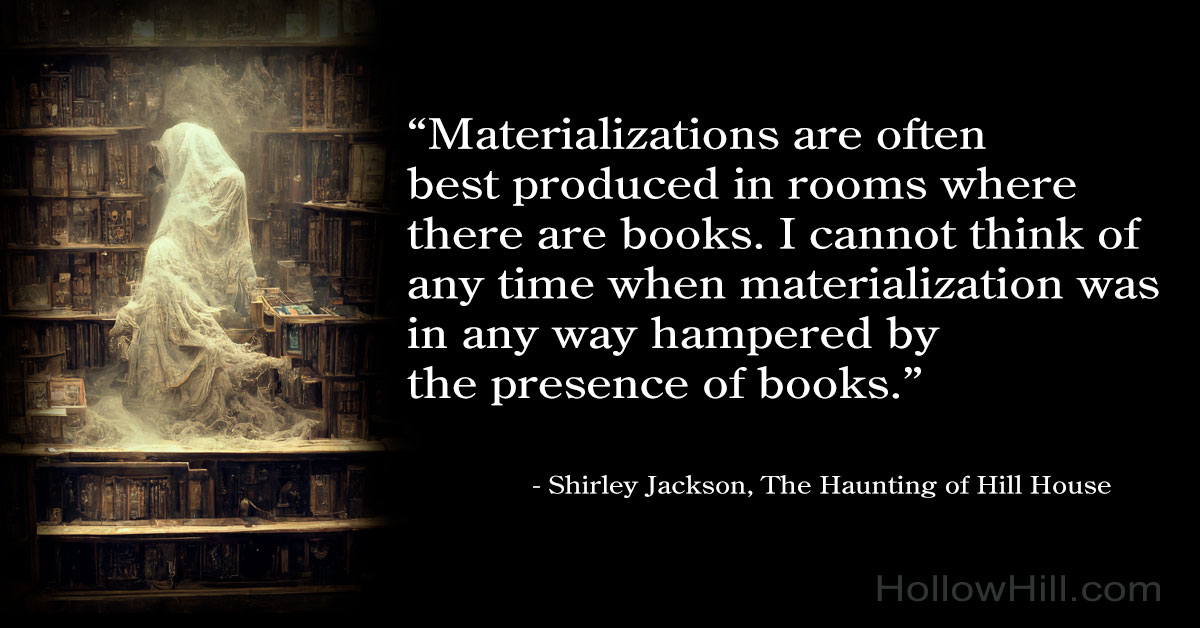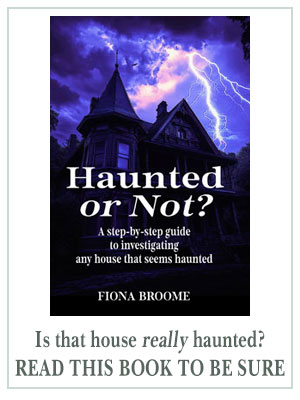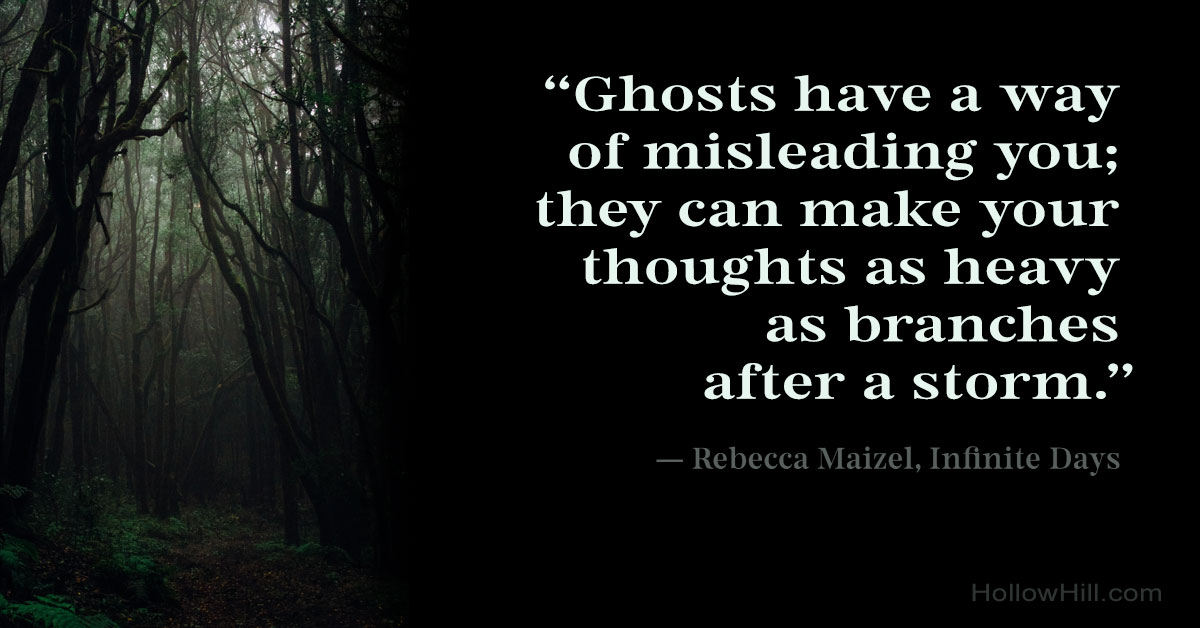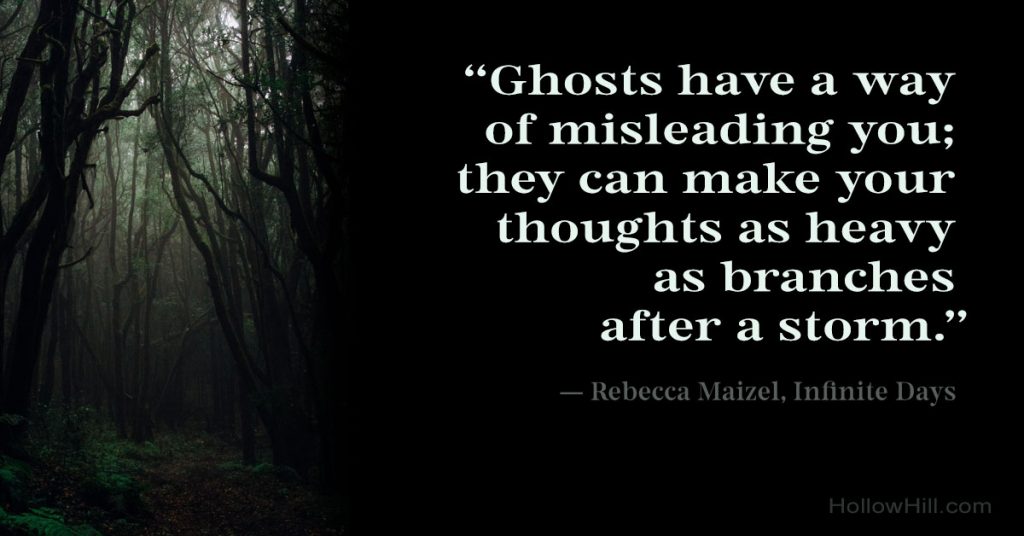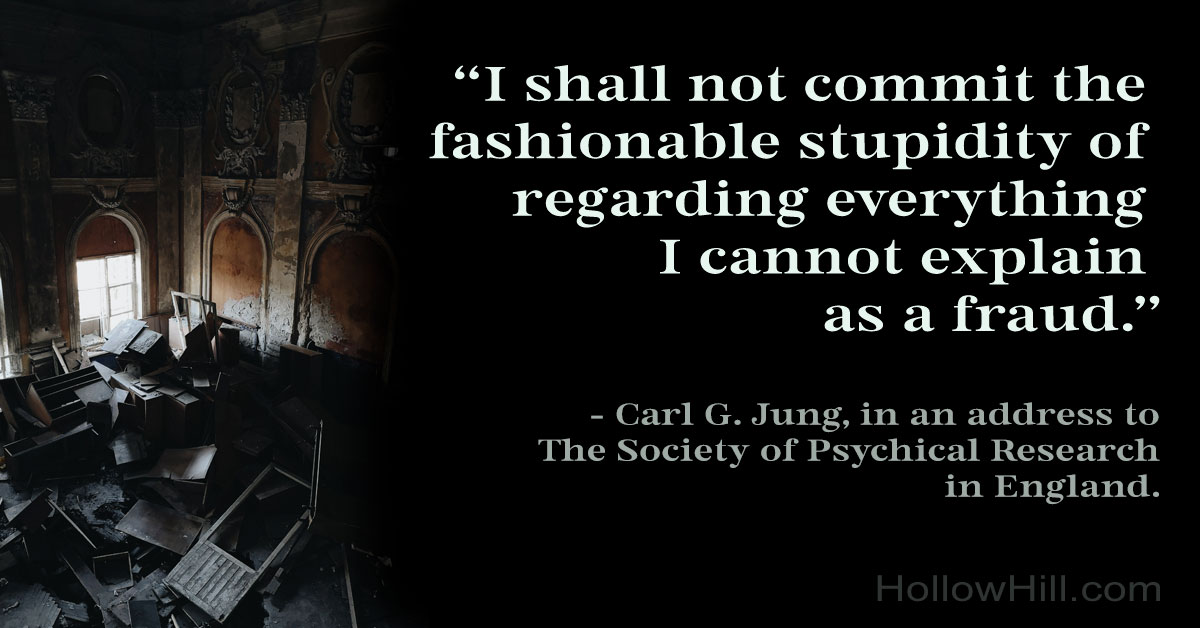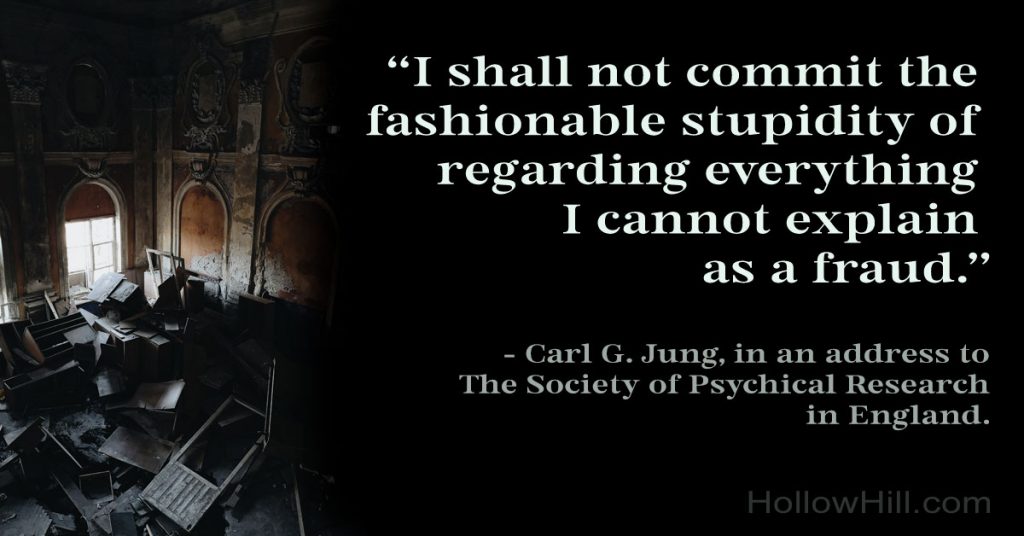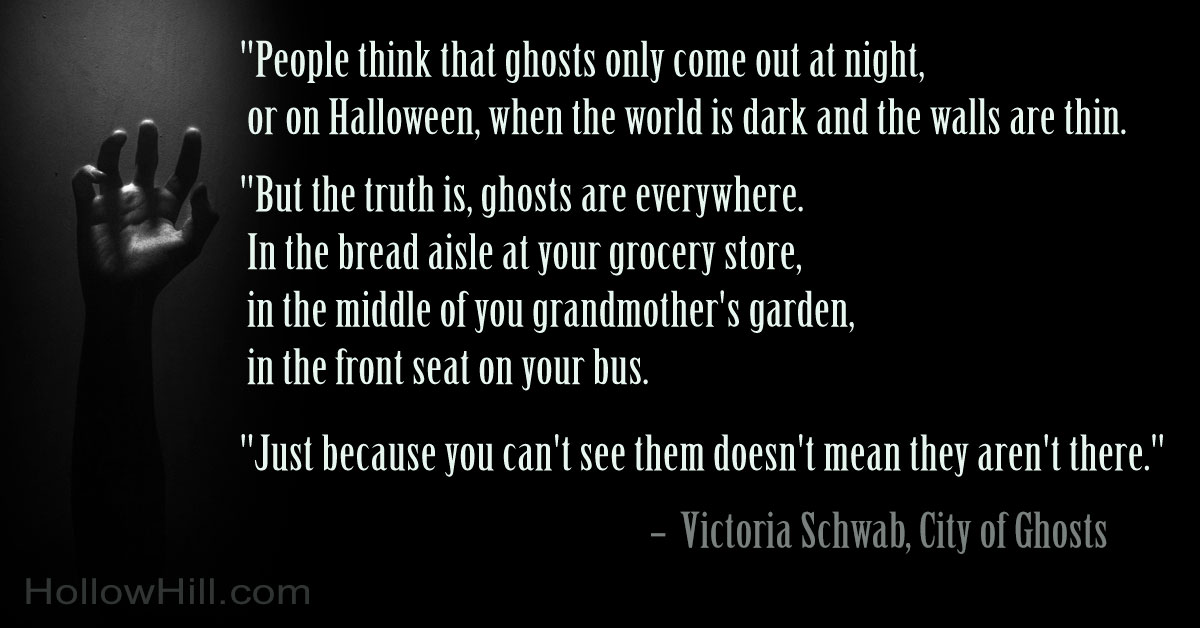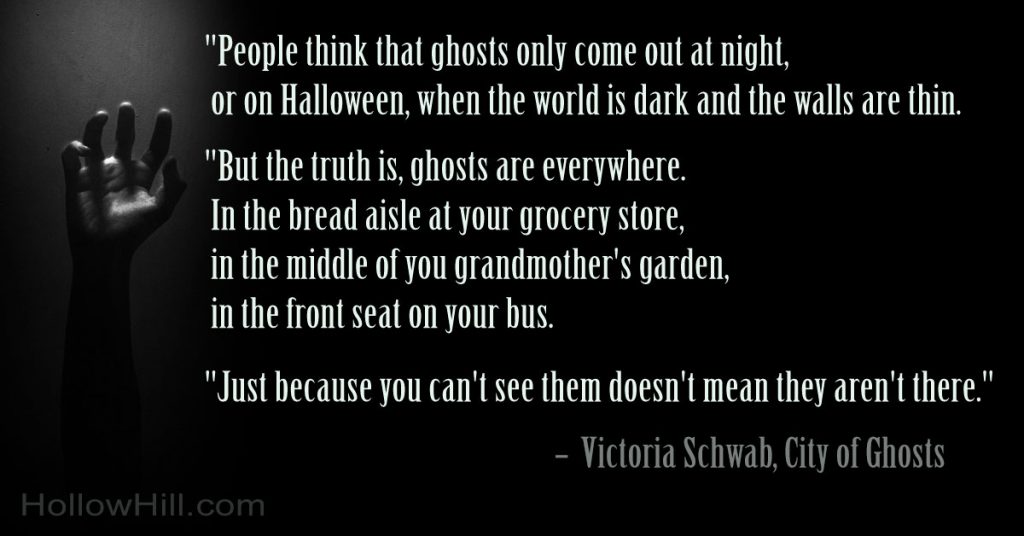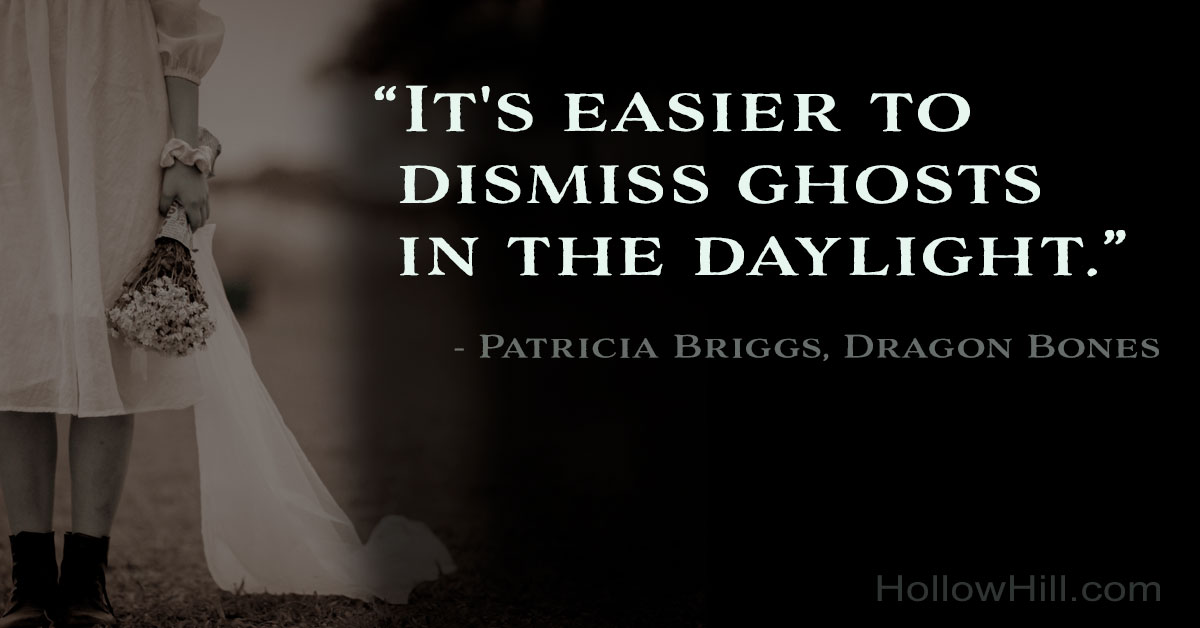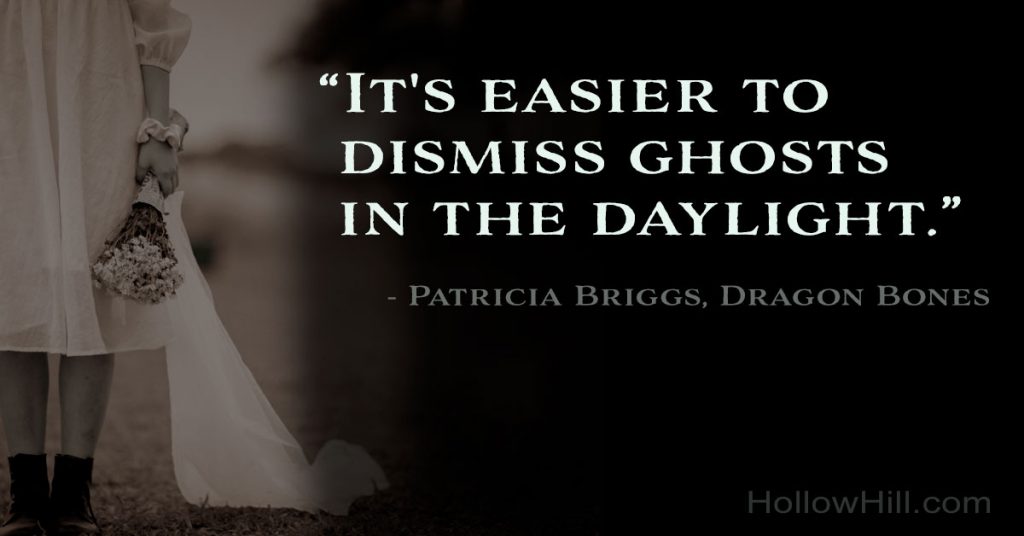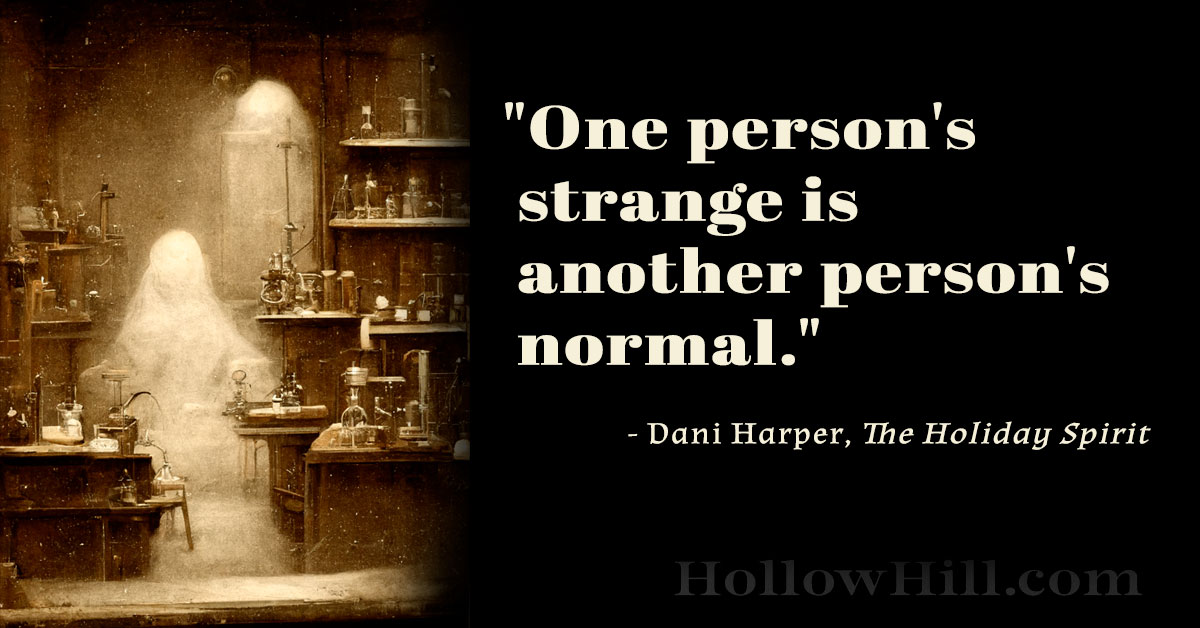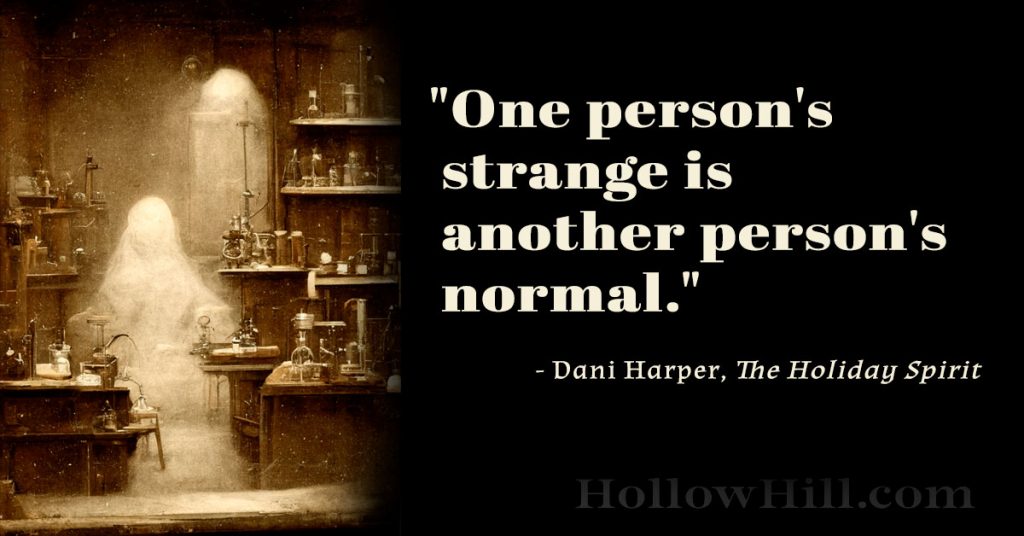Are you looking for a “hiding in plain sight” haunted location?
Start with your local library.
Really. I mean it.
In large and moderately large public libraries, there’s almost always one room that everyone – including the staff – prefer to avoid.
Often, it’s a room dedicated to genealogical and historical records. Do the spirits of the dead linger there, hoping to read about their lives, or even their obituaries?
Another likely haunt is the library’s storage room with dusty old magazines and newspapers, if they weren’t yet digitized.
Or, it might be the library’s collection of law books.
Those haunts are usually in the basement or on the top floor, in a room few even notice.
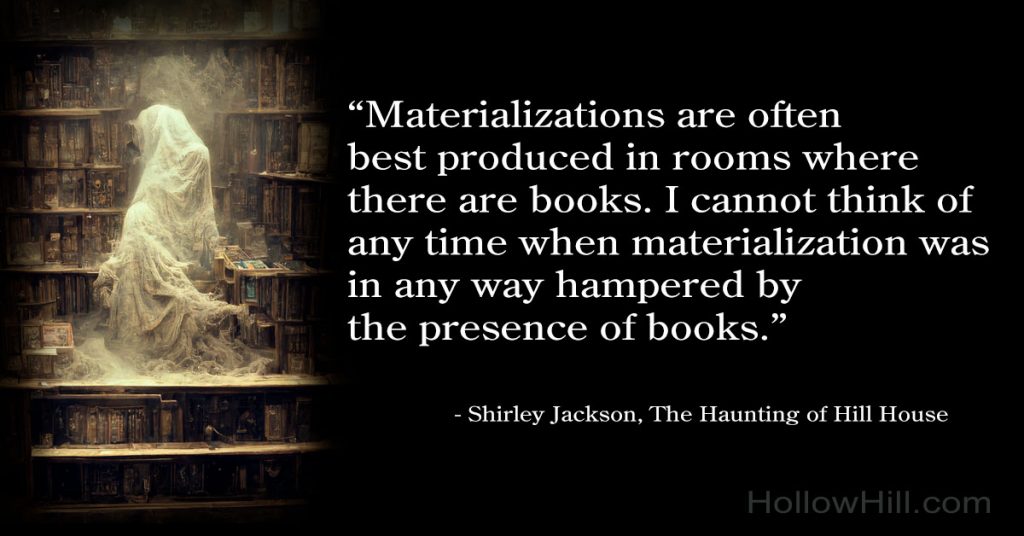
That quote by author Shirley Jackson, is her typically understated way of pointing ghost hunters in the direction of old bookstores and libraries.
In fact, Ms. Jackson’s book, The Haunting of Hill House, may be the most compelling and accurate ghost story ever written. I’ve read it at least a dozen times, and still enjoy it.
Skip the movie remakes of her story. The old b&w version with Julie Harris – called just “The Haunting” – is pretty faithful to Jackson’s tale. I’ve probably watched it a dozen times. It’s available on some streaming services. (The 1999 version with Catherine Zeta-Jones was regrettable.)
From time to time, libraries offer “ghost cam” views of their most haunted areas.
The Grey Lady of Willard Library offers the most opportunities to spot something odd among the books and hallways. (And though I wince at the editing, the first episode of Haunted Collector was filmed at a haunted library in Deep River, Connecticut.)
Or, you might check the list of the 10 most haunted libraries in the U.S. and the 10 most haunted libraries in the U.K.
Go local
Libraries are so haunted, you’ll probably find one near you. A friendly librarian may admit to the site’s ghosts, but other staff members may give you a stern look and tell you to go away; they don’t want anyone to know they believe in ghosts and actually have to work near one.
Start local, anyway. You may stumble upon something fascinated and very haunted.
For example, I visited the Tilton-Northfield (NH) public library regularly, not realizing its basement was haunted. I shared some of that story in my article about Tilton’s “Mystery Tunnels.”
(I think you’ll find more about related ghosts in Rue Taylor Cote’s book, Ghost Hunting in Tilton, NH. I contributed some stories to that book, but it’s been awhile since I read it.)
Remember that community libraries may be the tip of the iceberg if you’re looking for haunted libraries.
Also look for university libraries, law libraries, family history libraries, and so on. Not all will open their doors to you and some may object to you investigating their ghosts.
However, as Ms. Jackson suggested, if you’re looking for “hiding in plain sight” haunts, libraries and old bookstores are good places to start.
Or… once you know what to look for, you might find one in your own home.

